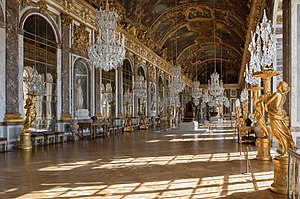Empress Josephine was such an icon in the 1800s. Yes, Marie Antoinette set the tone for French fashion, but in terms of character and being a boss woman, Josephine set the stage.
Like Napoleon, she too was almost not born a French citizen. Born on an island called Martinique, part of the Caribbean islands, Marie Josephe Rose Tascher de la Pagerie spent most of her childhood on her mother’s plantation in Martinique, living a peaceful and isolated life. But her father, a minor French aristocrat, was not a fan of this isolation and insisted that she get educated in France. In 1773, she moved to France and married a man she adored, Alexandre. She had 2 children with him, but she was not happy during this marriage. Her husband neglected her and she was afraid of socializing because of her worry that Alexandre would be embarrassed.
Josephine also struggled to adjust to French society as it was so heavily influenced by the Enlightenment at the time, and she was a simple girl from an isolated, farm-based society. Eventually, she was too stressed to continue living with her husband, so she separated from him and went to live in a convent. There, she learnt the ways of an upper-class French woman. She learnt how to dress, how to talk, how to walk, and basically got lessons in French Woman 101. Against all odds, she rose up in class as she left the convent and lived her best life. Until the French Revolution.
Josephine was under constant threat during the revolution because of her aristocratic background. During Robespierre’s Reign of Terror, she was arrested and imprisoned for 3 months, and released from prison exactly one day before her scheduled execution. After some more time, Josephine met Napoleon Bonaparte, who would become her husband and emperor of France. It is said that when Josephine first met Napoleon, she was not interested in him, but he was obsessed with her. There is even evidence of letters that he sent her confessing his love to her, many of which would be considered extremely creepy today. But over time, the two fell in love, and Josephine helped Napoleon gain the throne of France.
But once Josephine took on the role of the empress, she faced a new wave of challenges. After a few years, Napoleon divorced Josephine and both of their mental health faltered. Napoleon no longer had his trusted advisor’s guidance and she no longer had his love. Both of them still loved each other, but circumstances did not allow them to stay together because of the increasing pressure from the public on Josephine to produce an heir. They truly died miserable deaths.
Josephine faced challenge after challenge in her lifetime, but each time she persevered and fought through the rejections and the neglect and the overall struggle. She is one of those people that honestly isn’t known by enough people. I feel like her life story should be told for ages to come and she should be placed on the same pedestal as Napoleon, because she was the reason he became who he did. There is now a statue of her, beheaded, in Martinique because of her and Napoleon’s reinstatement of slavery in France. 












